
Oregon State's Damien Martinez arrested on suspicion of driving under the influence of intoxicants
Corvallis police says Oregon State running back Damien Martinez was arrested on suspicion of driving under the influence of intoxicants, a misdemeanor
2023-12-01 08:16
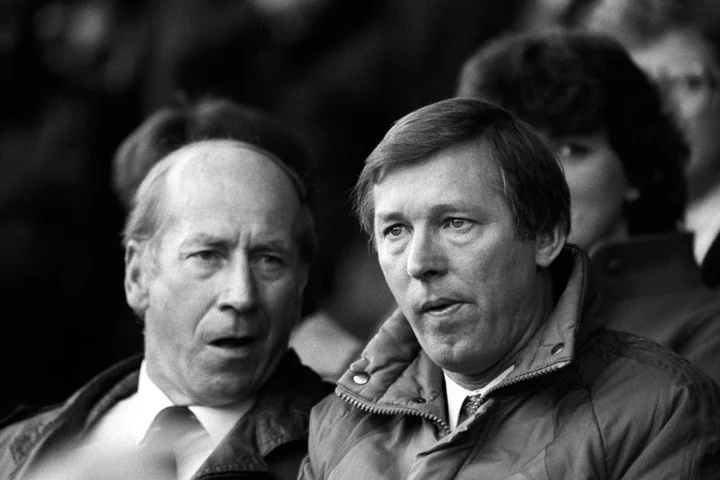
Sir Alex Ferguson pays sincere tribute to ‘tower of strength’ Sir Bobby Charlton
Sir Alex Ferguson has described Sir Bobby Charlton as a “tower of strength” for him in a heartfelt tribute to the Manchester United great. Charlton, one of the finest players the English game has ever produced, died last weekend at the age of 86. After an illustrious career in which he won the World Cup with England and helped United win the European Cup, Charlton went on to serve the club as a director and ambassador. He remained a prominent figure at Old Trafford throughout Ferguson’s glittering 26-year reign as manager, which began in 1986. In a eulogy to be published in the matchday programme for Sunday’s derby fixture against Manchester City, Ferguson reflected on his appointment and the “personal connection” he had with Charlton. He wrote: “The directors came to meet me in Glasgow and asked what my vision was for the job. I said I would take the same approach I had at Aberdeen, by looking to build up the whole club, not just the team, and that I would do that by developing young players. “As I was explaining this, I saw Bobby nudge one of the other directors and he said, ‘that’s what we want’. He’d made his mind up. From that moment on he was a tower of strength for me. “It’s no surprise to me that we’ve seen tributes to Sir Bobby from everywhere in the world, on every TV channel and in every newspaper, because he was without question the greatest English player of all time. “People loved him because of all those thunderbolt goals, but it was more than that. My dad used to say that humility in success is a sign of greatness, and that was Bobby. “He never used to boast about his own achievements; it was always about the team and the club.” Charlton’s death came soon after that of Ferguson’s wife, Lady Cathy. He added: “I am so sorry for Lady Norma (Charlton), who was always by Bobby’s side, especially as his health declined, and my thoughts have been with the whole family these past few days. “Unfortunately, I have also suffered the painful loss of my beloved wife, Cathy, this month, and I want to thank the club, the fans, and everyone who has sent me their condolences.” Read More We have a way to go – Erik ten Hag sure Man Utd on right track despite criticism Jude Bellingham brace helps Real Madrid to comeback El Clasico win at Barcelona Pep Guardiola accepts Man City gatecrashing party was ‘uncomfortable’ for elite South Africa edge New Zealand to win Rugby World Cup for record fourth time Jamie George demands ‘clarity’ over hybrid contracts for England players Gary O’Neil labels Newcastle penalty ‘scandalous decision’
2023-10-29 07:15
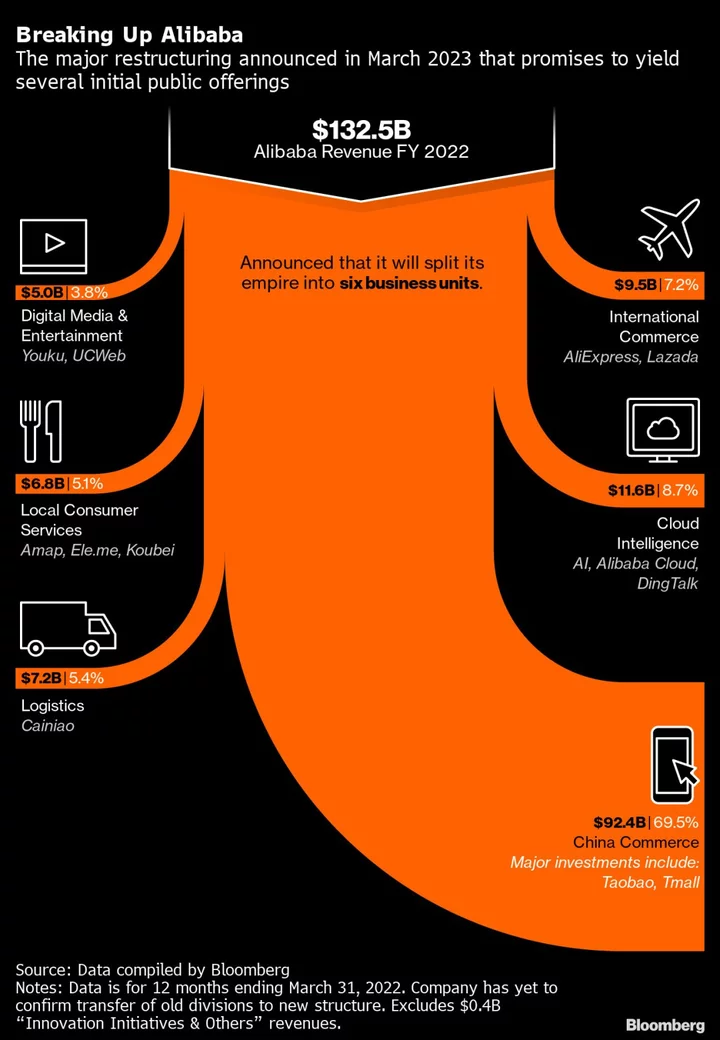
Alibaba’s Cloud Arm to Cut 7% of Staff in Overhaul, Sources Say
Alibaba Group Holding Ltd.’s cloud division has begun a round of job cuts that could reduce its staff
2023-05-23 19:21

Mariners get clutch 2-out hits from Kelenic and Suárez in a 7-6 win over the Twins
Jarred Kelenic’s two-run single capped Seattle’s big fifth inning against All-Star Sonny Gray, and Eugenio Suárez added a two-run homer in the seventh as the Mariners beat the Minnesota Twins 7-6
2023-07-18 13:23

Ruben Selles urges Southampton to end wretched season on positive note
Ruben Selles hopes relegated Southampton can go out on a high when they bid farewell to the Premier League against Liverpool on Sunday. A wretched campaign full of poor decisions meant Saints knew their 11-year stay in the Premier League was over with two games to spare. Southampton are on a winless 12-match run and have lost their last five on the bounce, with Swansea boss Russell Martin lined up as manager as they prepare for life in the Championship. Selles hopes his last match in charge ends with a positive result on Sunday, which could also see homegrown skipper James Ward-Prowse make an emotional farewell. “I think you need to choose in which mode you are every day,” Selles said of the atmosphere at St Mary’s on Sunday. “I think the fans need to do the same. “I know, I understand the disappointment of the season but, as you say, it can be the sun shining and then a big opponent, last game in St Mary’s in the Premier League this year. “We will not have for at least one more year and I think it’s a good opportunity to go on a journey together and try to make a good football match. “I thank our fans for being supportive in one of the hardest seasons that they had in the last 12 years. “Hopefully we can have a good environment on Sunday and then we can make something together.” Perhaps boosting Saints’ chance of a shock is the fact Jurgen Klopp’s Liverpool know they cannot reach the Champions League and will finish fifth after Manchester United beat Chelsea on Thursday. “It’s always a tricky question because I know Jurgen (Klopp) said that he will make some changes in the line-up probably,” he said. “It’s a situation with less pressure than if they were playing from the Champions League, of course. “But sometimes less pressure means more freedom and sometimes more freedom (helps), and they can go in both directions, so it’s just a different game.” The match could see academy products Theo Walcott and Mohamed Elyounoussi play their last games for Saints given their contracts expire in the summer. Che Adams, Mohammed Salisu, Armel Bella-Kotchap and Juan Larios are out through injury, while ineffective January signing Paul Onuachu is a doubt with a back problem. But there could be some positives to hold onto, with teenagers Kamari Doyle and Dom Ballard pushing for game time after making their league debuts last weekend. Talented full-back Tino Livramento could also get some time off the bench after ending his 392-day injury lay-off when coming on for 20 minutes at Brighton. “Tino will not play from the start due to his time restriction,” Selles said. “He can play at least the same amount of minutes as he did against Brighton.” Read More Charity boss speaks out over ‘traumatic’ encounter with royal aide Ukraine war’s heaviest fight rages in east - follow live Liverpool’s lack of final-day drama ‘completely new’ to boss Jurgen Klopp Frank Lampard will be ‘back at Chelsea many times’ as a fan after interim role England will keep embracing risks during Ashes despite ‘blip’ – Daryl Mitchell
2023-05-27 16:21

No. 4 Elena Rybakina falls to Sorana Cirstea to become the highest-seeded woman out at the US Open
Elena Rybakina was knocked out of the U.S. Open by Sorana Cirstea, at No. 4 becoming the highest-seeded women to be eliminated thus far
2023-09-02 12:55

DNA Script to Unveil Industry’s Most Versatile On-site, On-Demand DNA Printer at the World’s Largest Synthetic Biology Conference
PARIS & SOUTH SAN FRANCISCO, Calif.--(BUSINESS WIRE)--May 22, 2023--
2023-05-22 20:21

Ukraine says former Wagner fighters back in Bakhmut, now working as individuals for Russian Defense Ministry
Fighters who had previously fought in Ukraine for the Russian mercenary group Wagner have returned to the battlefield in the east, according to the Ukrainian military.
2023-09-28 08:17

Pochettino warns Chelsea's big-money buys over selection battle
Mauricio Pochettino refused to guarantee first team places to Chelsea's big money signings after the club's spending since last season...
2023-08-19 06:18
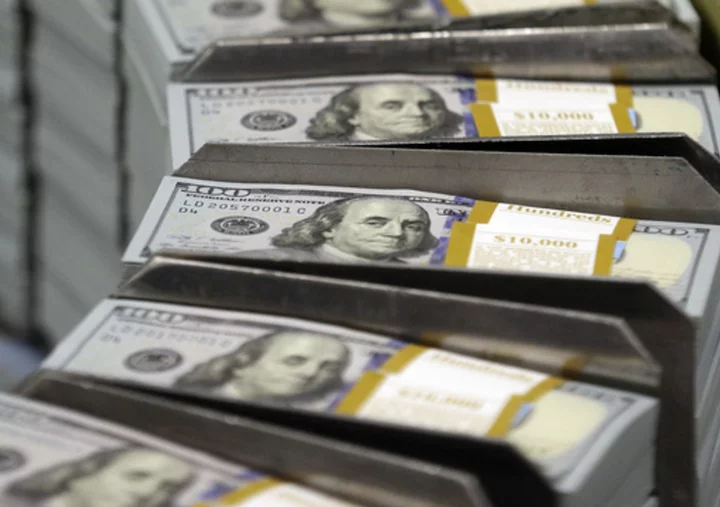
Debt ceiling negotiators rushing for weekend deal, but much work remains
Negotiators from the White House met over the debt limit with House Speaker Kevin McCarthy’s emissaries at the Capitol
2023-05-19 02:23

Guardians' Bieber won't throw for 2 weeks, apparently won't need surgery, Francona says
Cleveland Guardians right-hander Shane Bieber won’t be able to throw for two weeks because of an inflamed right elbow but apparently won’t require surgery
2023-07-17 06:21
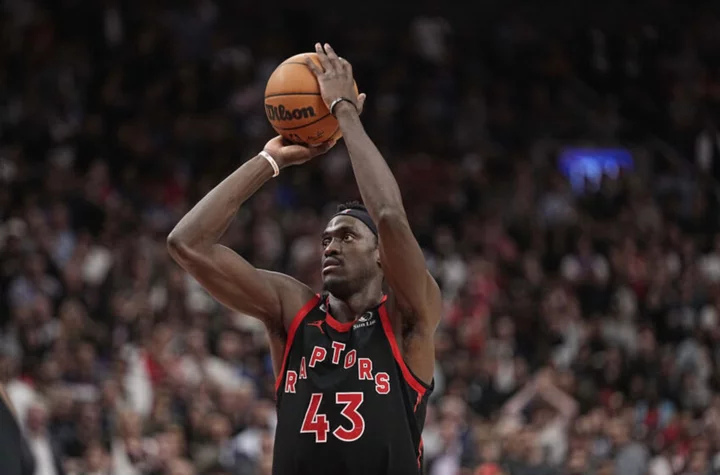
NBA rumors: Raptors keep rebuffing trade offers making direction clear
Everyone has been sniffing around the Raptors roster since last winter. But NBA rumors say they aren't interested in trades or a rebuild.According to Sam Amick of The Athletic, the Raptors are not looking to trade Pascal Siakam or OG Anunoby, signaling that they are looking to keep their co...
2023-06-26 21:53
You Might Like...
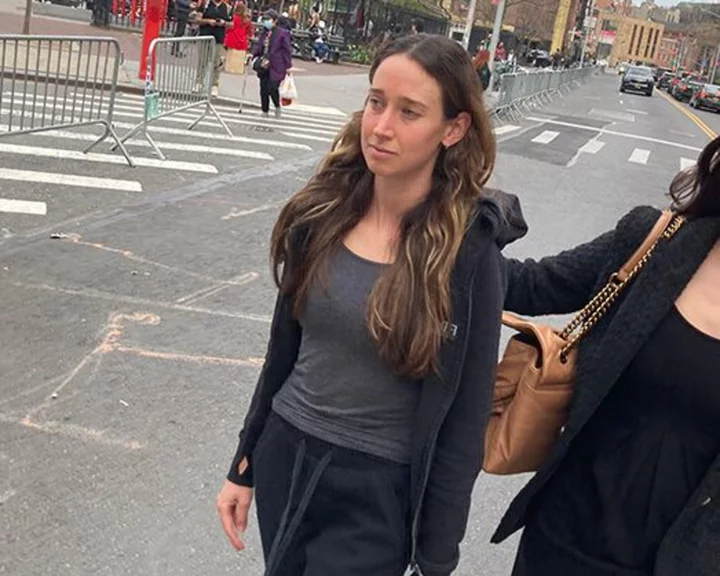
Frank Founder Charlie Javice Says JPMorgan Documents Will Exonerate Her

Taylor Swift fan dies at Rio concert as fans complain about high temperatures and lack of water

Lewandowski scores twice to rally Barcelona to 2-1 win over Alaves in Spanish league

New Google geothermal electricity project could be a milestone for clean energy
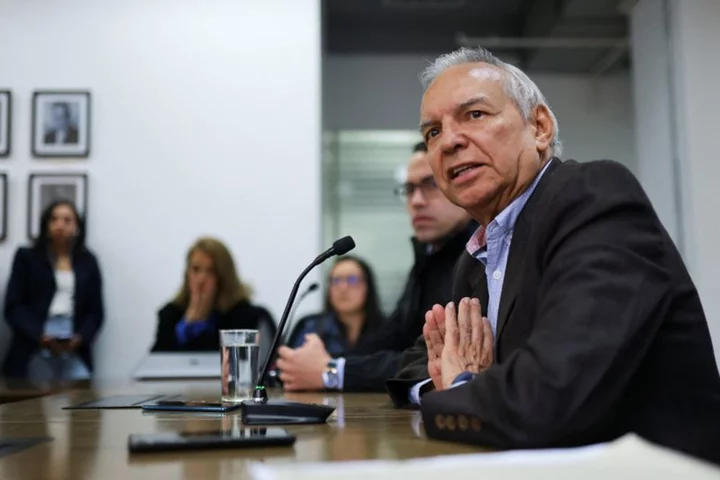
Colombia eyes two key rate cuts before year-end, finance minister says
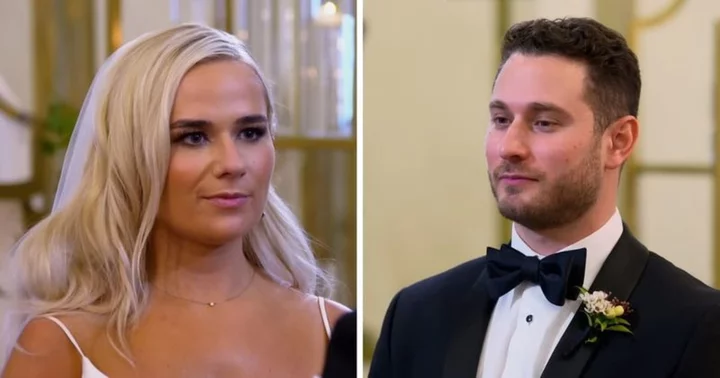
Will Emily Balch and Brennan Shoykhet split? 'MAFS' Season 17 bride leaves groom stunned with 'cringe' details about bachelorette

Athletics vs. Brewers prediction and odds for Sunday, June 11 (Fade the Brew Crew)
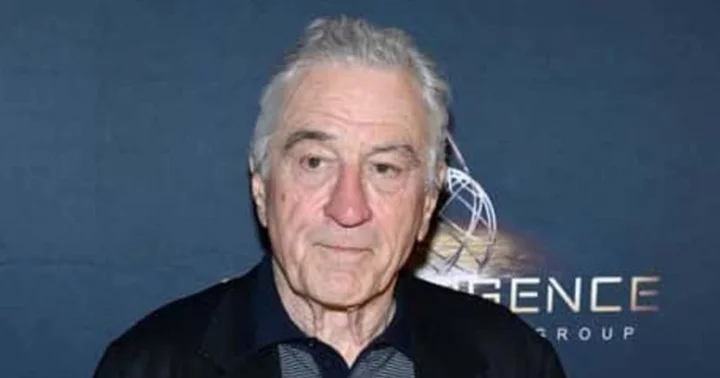
Robert De Niro's accuser says she 'won't be intimidated' as even 'most powerful men' shouldn't escape consequences
